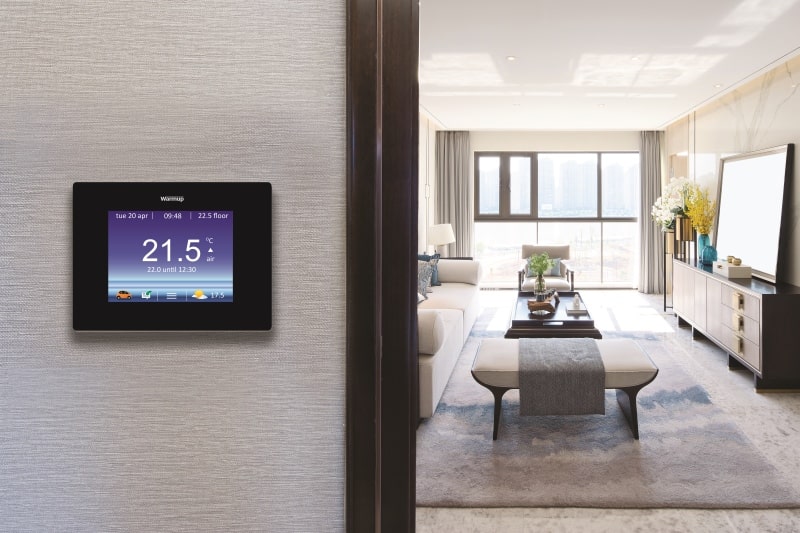
One way to try and cut down on living expenses is through your heating bills. With increasing utility bills, households are looking at ways to save on energy. In this article, we will explore some of the most effective and easy to implement methods of reducing money spent on heating.
6 Ways to save money on heating bills
1. Energy usage
The first step to reducing heating bills is to take a look at your energy usage. Most people are aware of the impacts regulating energy usage can have. If you are not, then timing your thermostat to heat your home only when you are around allows you to easily identify the impact on energy savings. Monitoring your energy consumption helps you understand where you are going wrong. Often, this just means turning the heat down gradually.
Curious about the Running Cost of a System?
2. Smart thermostats
It is worth investing in a thermostat that also allows you to monitor your energy usage. Some ‘smart thermostats’ can control the heating on behalf of the householder, constantly keeping the home at the right temperature, effortlessly. Smart home technology is becoming smarter and more user-friendly, transforming heating cost-efficiency in houses. The new technology for homes offers an opportunity for busy people attempting to reduce their heating bills by doing it on their behalf. A good thermostat, and preferably a smart thermostat equipped with WiFi, saves on heating bills over time. You can see the impact after about six months, when the cost savings really begin to kick in. Smart thermostats optimise the heating in your house, and are a certified means of ensuring that you are not wasting energy. There are some excellent examples of these thermostats on the market. Warmup’s 6iE Smart WiFi Thermostat is good value and promises to save the same amount in energy a year as the device itself costs. The 6iE Thermostat can save up to 25% of your energy usage by learning the most efficient way to heat your home.
If you are keen getting your heating smart and optimised:

3. Insulate
One of the key aspects to pay attention to when seeking to curb your energy usage is to prevent the warmth at home from escaping. Good insulation ensures no energy goes to waste, keeping heat loss to a minimum. Do consider investing in double glazed windows, a reinforced insulated front door, and insulated walls. Insulation means that your home heats up quicker, using less energy and keeping the warmth inside. This allows you to reduce the number of hours your heating is on per day.
More info about the heat loss in the house?
4. Consider installing underfloor heating
Underfloor heating is known for its cost-efficiency. It is also an ecological heating system because it runs at a much lower temperature whilst still reaching the same (if not higher) comfort level than conventional radiators, thus using less energy. Another reason is that it reaches the desired room temperature quicker, providing evenly distributed heat across the room. Warming the room from the ground up means that underfloor heating heats the people in the room as opposed to the air. Therefore, no energy will go to waste.
Interested in getting a free quote for underfloor heating?
5. Little changes that make a difference
Although investing in a smart thermostat and double-glazed windows pays off in the long term, there are other. As simple as it sounds, drawing the curtains at dusk prevents heat loss, i.e., wastage of heat. Pulling the curtains tight in the evenings and at night is a ‘first line of defence’ to keep the heat in.
6. Make sure that you are on the best tariff
One of the best ways to keep on top of your energy bills without any changes in lifestyle is to change energy suppliers. Your current supplier may have had a competitive deal for you to join, but once it expires, you are usually switched to a higher standard rate by default. High competition in the market means that today it is easy to switch energy providers. This is feasible and recommended on an annual basis to really make an impact on your heating bills. Fundamentally it does not make any difference who is supplying the energy to your home since the energy enters your property the same way irrespective of the provider. According to the Department of Energy and Climate Change (DECC) switching suppliers can save you up to £210 a year.
These are some ways to save money on your heating bills. Some of them cost money, but the expenditure is always worth it when you have a warm home and a gradually reducing heating bill.
You may also be interested in:





